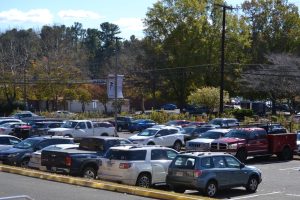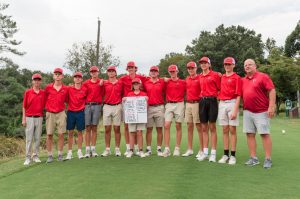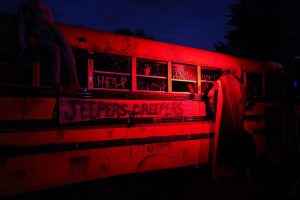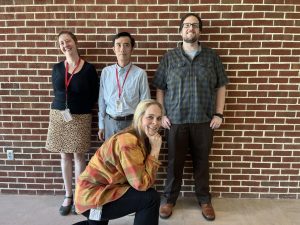Fauquier witnesses history as eclipse passes through Warrenton
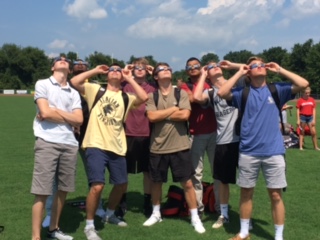
September 22, 2017
Students turned their gaze upward on Aug. 21 to witness the moon pass in front of the sun in the first eclipse visible across the contiguous United States since 1918. Students who furnished signed permission forms and appropriate eyewear were dismissed to the football field for the last half hour of school.
“I think it was cool to be able to get out of school and involve a ton of people in science that’s going on in the real world,” sophomore Jessica Pain said. “It’s something that’s happening in your lifetime that doesn’t happen that often.”
The eclipse traveled southeast from Oregon to South Carolina. As Virginia was not directly in the path, students observed only about 81 percent totality. While many students viewed the partial eclipse on the football field, others traveled out of state for the full experience.
Junior Leslee–Kate Massey traveled to Maryville, Tennessee to see the eclipse in totality.
“It was actually really interesting, because down there it got cold, and there was a 360-degree sunset,” Massey said. “It was one of the coolest things I’ve ever seen in my life. It was definitely worth missing the day of school for.”
Because only a partial eclipse was visible from Warrenton, some students and teachers felt like the event was not worth the hype or early dismissal. Senior Sophia Morales said she found the experience underwhelming.
“I thought you’d just see it in the sky, but you really had to put on the glasses and look up; otherwise, it just looked like the regular sun,” Morales said.
On the other hand, senior Angelina Martella said she was glad to experience the phenomenon, despite the interruption to the school day.
“We’re only going to have a few times in our life to see something like this,” Martella said. “If it happens to be during school, I think it’s important to be able to experience it.”
Total solar eclipses in the United States are normally rare, but the next one will come sooner than usual, on April 8, 2024.
Principal Clarence Burton said he hopes that students were able to develop a greater appreciation for science through the experience.
“You can’t duplicate this on a live stream,” Burton said. “The lighting is never like this. It’s neat to participate in science. I could only think [that this would inspire students to learn more about science]; you want to know the whys and the hows.”

